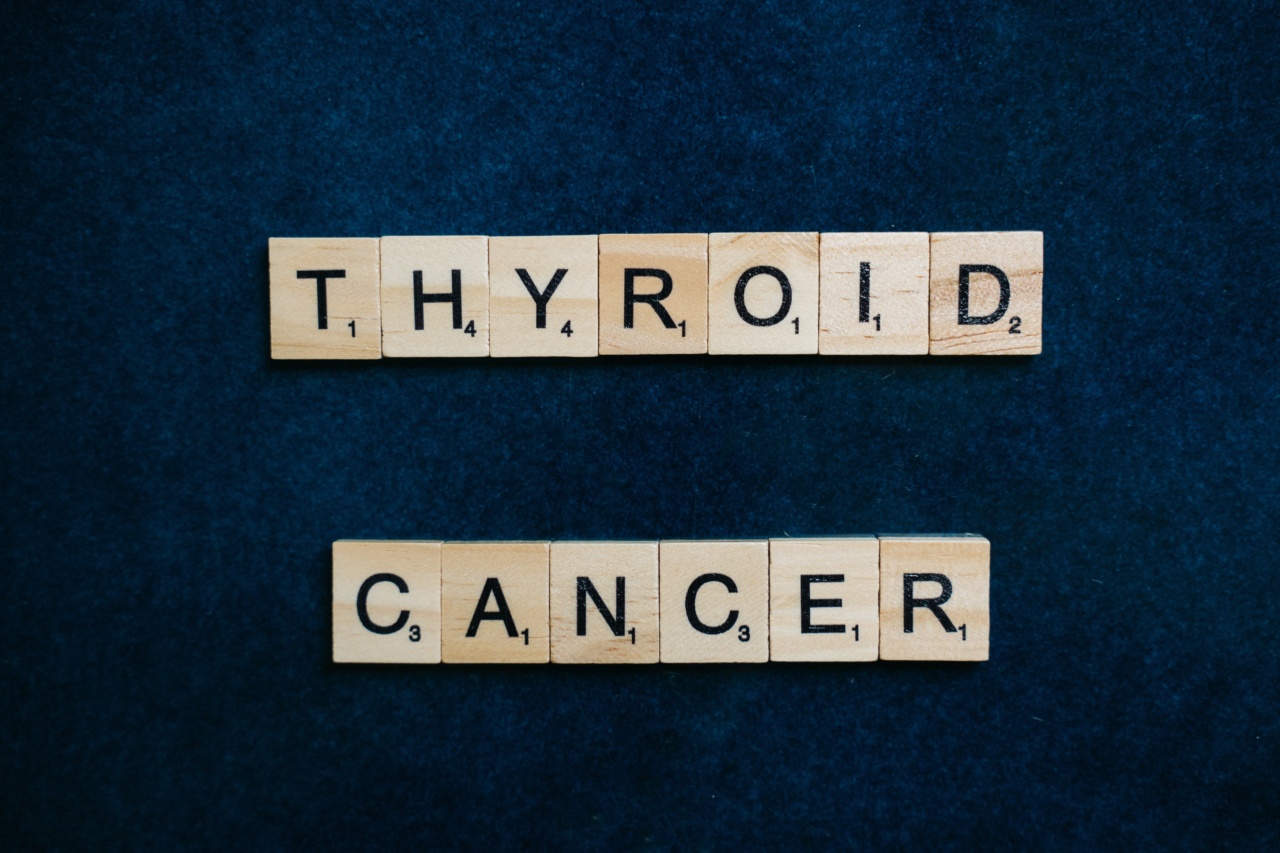Thyroid cancer is the most common endocrine malignancy, accounting for about 1% of all cancer cases. Despite the high survival rate associated with this type of cancer, around 20-30% of patients experience recurrence.
Early detection and accurate prediction of thyroid cancer recurrence can significantly improve patient outcomes by allowing timely intervention and targeted therapies. In recent years, several predictive assays have been developed to identify patients at high risk of recurrence. This article explores the advancements in predictive assays for thyroid cancer recurrence and their potential impact on patient care.
Risk factors for thyroid cancer recurrence
Before delving into predictive assays, it is crucial to understand the risk factors associated with thyroid cancer recurrence. These include:.
- Young age at diagnosis
- Aggressive tumor histology
- Tumor size larger than 4cm
- Lymph node involvement
- Extrathyroidal extension
- Incomplete surgical resection
- High level of thyroglobulin
- Presence of thyroid peroxidase antibodies
Identifying these risk factors helps in risk stratification and guides the selection of patients who may benefit from additional surveillance or adjuvant therapy.
Genomic-based predictive assays
Advances in genomics have opened up new possibilities for predicting thyroid cancer recurrence. Genomic-based predictive assays analyze the expression patterns of specific genes to provide a risk score for recurrence.
Some of these assays have shown promising results in clinical studies. The two most widely studied assays are:.
1. ThyroSeq
ThyroSeq is a next-generation sequencing-based assay that evaluates multiple genes associated with thyroid cancer.
It provides a risk score based on the expression pattern of these genes, allowing clinicians to identify patients at high risk of recurrence. The assay has demonstrated a high sensitivity and specificity in various studies, making it a valuable tool in predicting thyroid cancer recurrence.
2. Afirma
Afirma is another genomic-based assay that uses RNA sequencing to assess the expression levels of genes associated with thyroid cancer. It categorizes patients into low, intermediate, and high-risk groups based on their gene expression pattern.
Studies have shown that Afirma can accurately predict benign thyroid nodules, reducing the need for unnecessary surgeries.
Blood-based predictive assays
In addition to genomic-based assays, researchers have also explored the potential of blood-based assays in predicting thyroid cancer recurrence.
These non-invasive assays detect specific biomarkers in the blood that indicate the presence of cancer or its recurrence. Some of the blood-based predictive assays being investigated include:.
1. Circulating tumor DNA (ctDNA) analysis
ctDNA analysis involves detecting cancer-specific DNA fragments in the bloodstream. It can be used to monitor changes in tumor burden and detect recurrence at an early stage.
Several studies have shown the potential of ctDNA analysis in predicting thyroid cancer recurrence with high sensitivity and specificity.
2. Circulating tumor cells (CTCs)
CTCs are cancer cells that have detached from the primary tumor and entered the bloodstream. Detecting and analyzing CTCs can provide valuable information about tumor biology and predict the likelihood of recurrence.
Although still in the early stages of development, CTC analysis holds promise as a blood-based predictive assay for thyroid cancer recurrence.
The future of predictive assays for thyroid cancer recurrence
As the field of predictive medicine continues to advance, the future of predictive assays for thyroid cancer recurrence looks promising.
Researchers are exploring the integration of multiple assays to enhance predictive accuracy and improve patient risk stratification. Additionally, the use of artificial intelligence and machine learning algorithms in analyzing genomic and blood-based data may further refine the predictive power and clinical utility of these assays.
Conclusion
Predictive assays for thyroid cancer recurrence represent a significant advancement in personalized medicine.
These assays, whether genomic-based or blood-based, offer a valuable tool for clinicians to assess the risk of recurrence and tailor treatment strategies accordingly. Early identification of patients at high risk of recurrence allows for timely intervention and improves overall patient outcomes.
As the field continues to evolve, predictive assays hold immense potential in transforming the management of thyroid cancer and improving patient care.






























